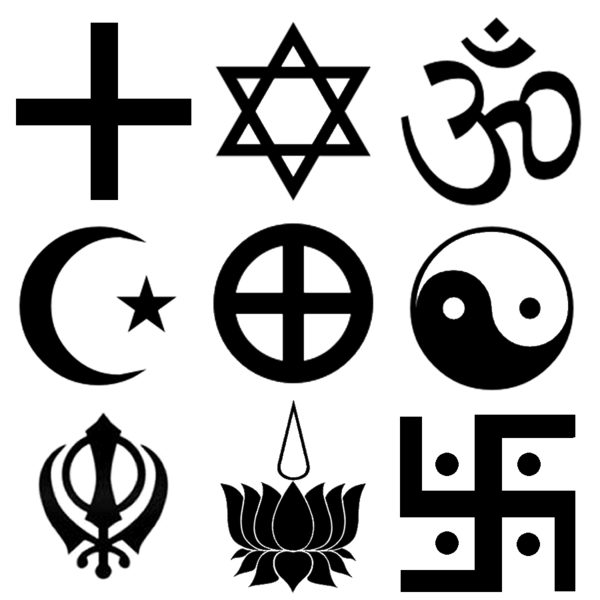The Republic of Congo, a nation situated in Central Africa, embodies a rich tapestry of cultural and religious diversity. It presents an intriguing case study for those interested in the interplay of faiths and the manner in which they influence individual and collective identities. Predominantly, Christianity permeates the fabric of society, yet this faith coexists with traditional beliefs and other religious practices, creating a fascinating mosaic that deserves exploration.
An immediate observation reveals that a substantial majority of Congolese people identify as Christians, with estimates suggesting that over 80% profess this faith. This overwhelming presence is attributed largely to the historical influence of European colonialism in the late 19th and early 20th centuries, when missionaries from various Christian denominations ventured into the region. These missionaries not only sought to convert the local populace but also aimed to instill Western educational systems and cultural norms. The resultant conversion had lasting effects, as local communities assimilated Christian teachings alongside their indigenous practices.
Primarily, the denominations present in the Republic of Congo stand out: Roman Catholicism, various Protestant sects, and a growing presence of Evangelicals. The Roman Catholic Church retains significant influence, with historical roots deepened by early missionary efforts. Its elaborate rituals and community gatherings have fostered a solid sense of belonging among adherents. On the other hand, Protestantism, including Baptist, Pentecostal, and Seventh-day Adventist movements, displays a dynamic realm of spirituality that resonates profoundly with contemporary Congolese ways of life. Evangelical communities have surged in prominence, appealing to a younger demographic seeking vibrant expressions of faith.
The coexistence of Christianity with traditional spiritual practices, known as “animism,” adds further complexity to the religious landscape. Many Congolese people practice a syncretic form of spirituality, weaving together Christian tenets with ancestral worship, beliefs in spirits, and rituals honoring the earth and nature. This duality allows individuals to maintain cultural ties while engaging with the universal themes of Christianity. It speaks to a broader aspect of human nature—the desire to express spirituality in ways that honor history, community, and identity.
In addition to Christianity and traditional beliefs, Islam has a notable presence, particularly in urban centers. Although constituting a smaller percentage of the population, the Muslim community has made important contributions to Congolese society, particularly in commerce and education. The interactions between Christians and Muslims are generally characterized by mutual respect and coexistence. This can be attributed to a common understanding of ethical values derived from their respective faiths, which fosters a sense of unity amidst diversity.
The phenomenon of religious pluralism in the Republic of Congo evokes curiosity. What mechanisms enable this coexistence? A critical factor may lie in the Congolese approach to communal life. With kinship and community bonds deeply ingrained, the emphasis is often placed on shared values rather than doctrinal differences. Religious gatherings serve as social hubs, where individuals come together not only to worship but also to forge connections and support one another in various facets of life. The communal aspect of spirituality fosters an environment where differences can be set aside for the sake of unity and collective well-being.
This communal worldview is complemented by the resilience of the Congolese spirit. Throughout history, the Republic of Congo has faced numerous challenges, including civil wars and political instability. Religion has emerged as a beacon of hope, providing solace and a framework for moral guidance amidst turmoil. Churches often become sanctuaries where individuals can find comfort, and congregations band together to support those in need. This phenomenon highlights the role of faith as not merely a belief system, but as a vital source of resilience and a conduit for social change.
Yet, the religious landscape is not entirely devoid of conflict. Frictions occasionally arise, particularly when traditional beliefs clash with Christian doctrines. For some, the enduring practice of animistic rituals might be seen as antithetical to Christian faith. Such discord invites dialogue and, at times, highlights the struggles of individuals navigating their identities amidst a confluence of expectations. However, these tensions also serve as opportunities for deeper understanding and compassion as believers seek common ground.
Furthermore, one cannot ignore the role of education in shaping religious perspectives. With a growing emphasis on educational attainment, particularly among younger generations, the understanding of faith is evolving. Many young Congolese question established norms, leading to vibrant theological debates. This quest for knowledge spurs curiosity about differing religious practices, encouraging an inclusive approach that seeks to recognize and appreciate diversity as a strength rather than a weakness.
In conclusion, the exploration of religion in the Republic of Congo reveals a complex interplay of faiths that harmonizes rather than opposes. Christianity may serve as the cornerstone of belief for many, yet it coexists with traditional practices and other religions, enriching the spiritual and cultural landscape of the nation. This diversity fosters a profound sense of interconnectedness—one that highlights the humanity shared among individuals from varied backgrounds. As the nation continues to evolve, the role of religion will undeniably remain a pivotal aspect of its identity, with profound implications for social cohesion and collective resilience.



